Customer Satisfaction in motor insurance policies a case of an insurance firm in Sri Lan
Customer Satisfaction in motor insurance policies a case of an insurance firm in Sri Lan
By G.M. Niroshani
URL:
Citation:
Date: 2022
Supervisor: Amila Withanaarachchi
Abstract
Due to the abundance of identical products on the market, competition among varied brands has been escalating quickly. In order to meet the needs of its customers, a firm must understand the best way to communicate the story of its brand. Sri Lanka Insurance Corporation which has been performing well over the decades. Even though Sri Lanka Insurance Corporation has performed well in the market over the past few decades, it has been noted that the company is currently dealing with decreasing customer satisfaction as a result of the ongoing sales loss. Consequently, the research’s major goal is to pinpoint the variables influencing customers’ satisfaction on motor insurance policy. The established goal of this study was to investigate the causes of decreasing customer satisfaction at Sri Lanka Insurance Corporation. and to make suggestions for potential remedies to address the problem. For the purposes of the research’s analysis, the sample consisted of 207 customers, and the population included all customers of Sri Lanka Insurance Corporation. The research identified perceived quality, pricing fairness, brand awareness, and brand loyalty as the independent variables and customer satisfaction as the dependent variable, in accordance with the literature’s road map. In light of the main findings, the generated hypotheses were put to the test. According to the results, while there is no correlation between customer reviews and the company’s customer satisfaction, the regression analysis itself showed a positive relationship and significant effect between perceived quality, price fairness, and brand loyalty with customers’ satisfaction of Sri Lanka Insurance Corporation. The research thus came to the conclusion that lower consumer satisfaction levels for the Sri Lanka Insurance Corporation is a result of perceived quality, pricing fairness, and brand loyalty. As a result, the study provided key recommendations for overcoming the lower levels of customer satisfaction, including identifying a customer-driven quality strategy as the tool to maintain the perceived quality level, developing a system of brand loyalty, and adjusting a pricing strategy for market penetration.
Download File
File Name: Customer Satisfaction in motor insurance policies a case of an insurance firm in Sri Lanka
Size: 391 KB
Format: PDF
Browse By
© 2012-2019 ICBT Campus | Design by ICBT IT Team | ICBT All Rights Reserved.
Design by ICBT IT Team

